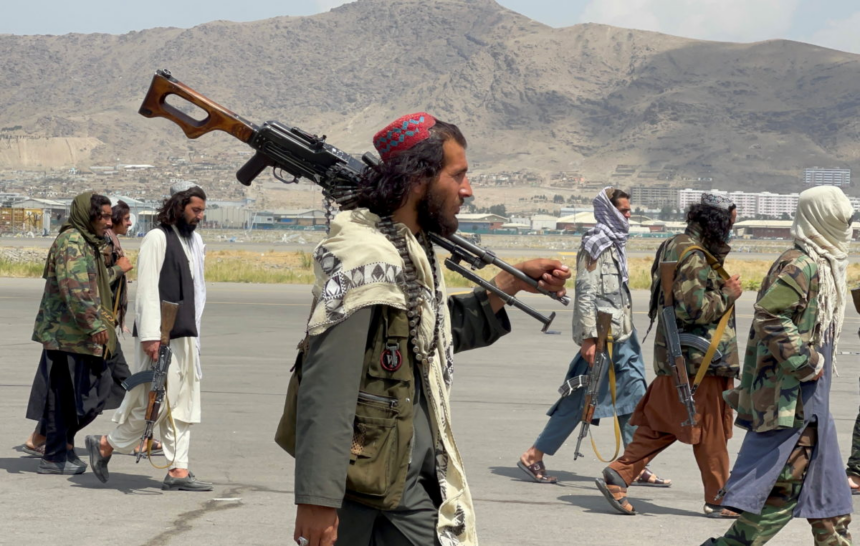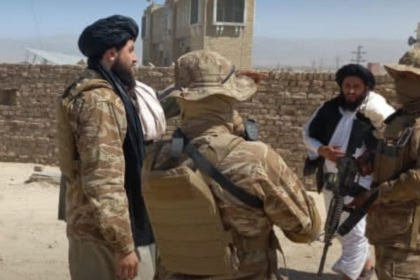RASC News Agency: Sources reveal that during their recent visit to Kabul, a U.S. delegation presented the Taliban with two decisive options: either return the abandoned American weaponry left in Afghanistan or accept a continued U.S. presence at Bagram Air Base. According to these sources, Sirajuddin Haqqani, during his visit to the UAE, engaged in secret meetings with American officials a move that sparked strong opposition from Taliban leader Mullah Haibatullah Akhundzada. In Kabul, the U.S. delegation primarily engaged with the Haqqani faction and the Kabul-based Taliban leadership, further deepening internal rifts.
Reports suggest that Haqqani’s recent 52-day absence, during which he traveled to the UAE, was marked by discussions with American representatives. These interactions, however, were met with direct resistance from Haibatullah, who remains deeply suspicious of Haqqani’s growing ties with Washington. One source revealed that Haibatullah has actively sought to limit Haqqani’s authority, even reassigning his loyalist forces from Paktia to other regions in a bid to weaken his power base. Meanwhile, Zalmay Khalilzad, during his visit to Kabul, reportedly conveyed a direct message from Donald Trump: either the Taliban must return all U.S. military equipment left behind or permit an official American presence at Bagram Air Base.
However, Taliban spokesperson Zabihullah Mujahid sought to downplay tensions, emphasizing that discussions focused primarily on expanding diplomatic engagement between the Taliban and the U.S. In an interview with Al Arabiya, he stated: “No one can remain an enemy forever. Our conflict with the U.S. stemmed from their military occupation of our country. They had troops here, violating our independence. But once they withdrew and the Doha Agreement was signed, we transitioned out of a state of war. Now, we are not in conflict with the U.S. or any other country. The time has come for trust, dialogue, and cooperation.”
Mujahid further asserted that the U.S. is no longer an enemy of the Taliban but rather a partner in engagement. The Taliban, who once waged a brutal insurgency against U.S. and Afghanistan government forces resulting in the deaths of nearly 50,000 Afghanistani security personnel now appear eager to normalize ties with Washington. This dramatic shift from armed resistance to diplomatic cooperation raises profound questions about the Taliban’s long-term strategy and their evolving relationship with the United States.






